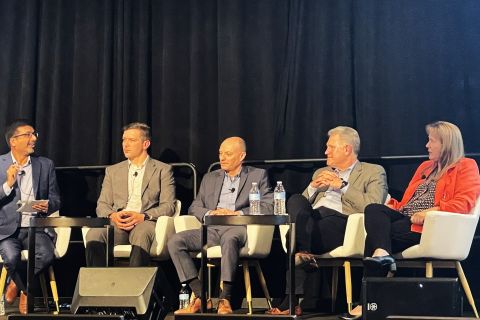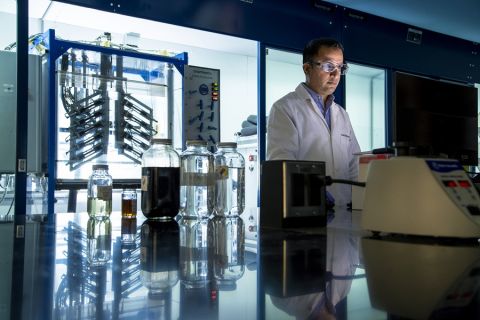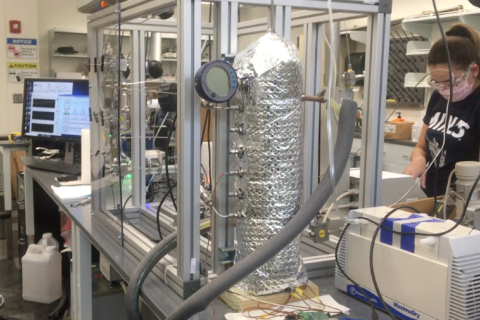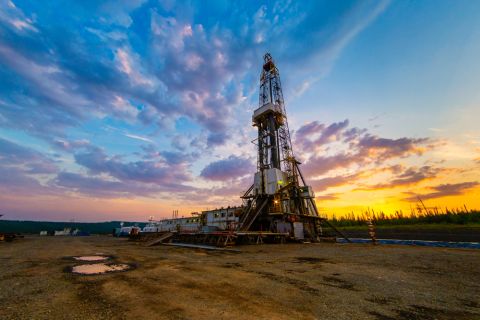I'm Jordan Blum, editorial director with Hart Energy here at CERAWeek by S&P Global, and I'm joined by former U.S. Sen. Mary Landrieu, now with Natural Allies for a Clean Energy Future.
Jordan Blum: So natural gas is often dubbed a bridge fuel. What needs to be done now to make natural gas much more than just a bridge for decades to come?
ML: Well, it is much more than a bridge. It's actually the solution to our climate challenge, which is real, and it's global and it's big, and we need big, bold solutions. And one of the great solutions is … having natural gas accelerate our clean energy transition by partnering with renewables. Wind and solar. Wind and solar need partners. They may not realize it, I think they do, but they need a partner and we are their best partner. Our price is right. We're abundant. …Wherever they are, we are, they could either use nuclear or they could use hydro, which are base power, but you can't turn on and off a …. hydro project. You can't turn off a nuclear plant, but you can turn on and off a gas plant, 10 minutes. So when the sun sets, you turn up your gas, when the wind stops blowing, you turn up your gas. That gives us a reliable way to fuel our country's electric grid as well as our industrial sector. And we can export LNG all over the world, replace coal and bring down global emissions faster than anybody else, which is really exciting.
JB: How do you feel the industry's addressing methane emissions when it comes to flaring pipeline leaks, the, the whole value chain?
ML: Well, in a, in a wonderful way, 20 years ago not much of that was going on, but in the last just few years, many companies have eliminated their fugitive emissions. Many companies have invested their own funds to make sure that our gas in America is the cleanest in the world with third-party verification. So while the industry 20 years ago didn't pay much attention to this, they're paying a lot of attention now. Why? Because the market is demanding it. …International buyers want the cleanest gas in the world, and we can provide it. So it is really an amazing asset that the United States has, and I'm so proud that even today, [Energy] Secretary [Jennifer] Granholm said, we will need gas for a long time. We will need, need liquefied natural gas. We need to send our gas overseas to help democracies all over the world.
JB: In that vein, I mean, how have LNG exports kind of fundamentally changed the global business model?
ML: It has just been transformative. Now, you know, [Russian President Vladimir] Putin started this by invading the Ukraine and using his gas, Russian gas, which is dirty, much dirtier than American gas. It's not as dirty as Russian coal, but it's dirtier than American gas. He used it, he weaponized it and tried to threaten and blackmail Europe. And the U.S. as usual, stepped up, put our shoulder to the wheel, got our LNG moving. We can move much more to Europe and to Asian markets and help our trading partners all over the world. Now, are we out of the woods yet? No, just because there wasn't a catastrophe in Europe. We sent our gas, but they had to pay a very high price for it. … They didn't pay it to us, they paid it to the open market. The gas we had sold to China, China turned around and sold it to Europe for a very high price. So if Europe wants to get lower prices and reliable gas, then we need to make sure that we're producing more gas and that they're putting in the facilities to take our gas.
JB: So how pleased are you or are you not with the pace of federal approval for these LNG projects that take several years to get built?
ML: Well, the federal government's been actually pretty good about permitting liquefied natural gas projects. We have about seven up and running, and we have others that are permitted that are waiting for financing. But what the administration is doing, which is wrong in my view, is sending out mixed signals to the international capital markets saying one day we like gas, the next day don't invest in fossil fuels. One day, you know, we want to produce more gas in America and the next day running to other countries and asking them to produce while we keep our wells shut in. So the administration needs to be much more consistent and much more of a cheerleader to say, capital markets respond to this great need in the world to get clean, natural gas out of the United States. Keeps our prices relatively low. We can deliver gas cheaper than almost anybody in the world to whoever wants to buy it or needs it.
And then that gas becomes a base for more renewables, you know, and cleaner energy. And we get to our goals faster. And that's what I want people to understand. The gas industry is a solution to our global energy challenges. We are not part of the problem. And as we get cleaner, the molecules get cleaner, the gas gets certified, Europe wants certified clean gas, and I hope that Europe itself will do more to develop its own natural resources if it has gas. Obviously, it does in the North Sea, and many other countries might have gas reserves. Europe should tap their own gas reserves. They should also get some gas from us, which we're a reliable partner for the best price they can. But they should invest in this technology, reopen their nuclear power plants, and stop relying on Russia.
JB: Gas pipelines are a big issue too. You're obviously the expert here, but I mean, are you optimistic about Congress tackling infrastructure reform this year?
ML: I am, I am. I'm cautiously optimistic, but you know, we need more natural gas pipelines, more pipelines in the United States to move gas and associated oil and gas … from, where it's produced, to where it's needed. Obviously we need many more pipelines to the northeast. The northeast is making some terrible, terrible political decisions, which the people of the Northeast are going to pay dearly for. And it's thousands and thousands of dollars that people in the Northeast — the people that can least afford it, are paying higher energy prices because instead of getting gas from their next door neighbor in America, they bring tankers in, or did up until four years ago, bring dirty gas tankers from, you know, from Russia to the Northeast. Now I know the Northeast wants some more windmills, perfect. Wind turbines. I know they want more solar, they should build it.
They don't have nearly enough, and the wind that they are trying to build off the Northeast, while it's exciting and I support it, it's too expensive right now for the consumers to pay for, which is why you see some of these projects collapsing. So the answer is cheap natural gas, the pipelines to move it until we can get the supply chain issues, the price down for wind and offshore wind so that it can be part of our grid. So I'm optimistic in the sense that we need transmission lines to move our solar and wind from Western states or has a lot of solar. We need to move it east or move it to California where the demand is great. I hope we can. It's now that we have the IRA [Inflation Reduction Act] done, maybe people think, oh, well that was great, even though it was all Democrats that did that. But maybe the Republicans say they're getting such positive response from that, from the boost that it's encouraging. We need now to do infrastructure reform.
JB: Is it critical that that happened this year when it's so hard to get anything done in an election year?
ML: It's just important the faster we get it done. I mean, there's literally billions — trillions, trillions of dollars of projects, private money. We're not talking about government money, private money sitting on the sidelines waiting to invest or, you know, hovering until these permits can get done. We've got 3 million miles of pipeline in America. I don't know if we need a whole million more, but we need thousands and thousands of more miles. We don't have enough. We need hydrogen pipelines. We need to build all kinds of facilities. And even [White House senior adviser for clean energy] John Podesta said, I think this week, … we've said for so long in the environmental movement, I'm paraphrasing, stop building things. Now. We need to start building things. We need to start building the clean energy future that we need. And that includes natural gas.
JB: Great. Do you see the [Sen.] Joe Manchin plan as the solution, or do you see another compromise?
ML: I think there'll be a different compromise. What Senator Manchin did was terrific, and he had a lot of wonderful things in the bill, but instead of just getting the Mountain Valley Pipeline built, we need to get like dozens of other pipeline built in the country to move gas from, you know, Canada into the United States. From the United States, potentially to Canada, to the Gulf Coast, particularly to the Northeast. So, and we've got to get more transmission lines built. So it was a start. I think it's a good basis to add, but it needs to be added to, and we need more Republican input, so they will believe that they had enough input to get it done.
JB: Thank you so much for taking the time, Senator Landrieu.
To learn more, please visit us online@hartenergy.com.
Recommended Reading
Haynesville’s Harsh Drilling Conditions Forge Tougher Tech
2024-04-10 - The Haynesville Shale’s high temperatures and tough rock have caused drillers to evolve, advancing technology that benefits the rest of the industry, experts said.
Fracturing’s Geometry Test
2024-02-12 - During SPE’s Hydraulic Fracturing Technical Conference, industry experts looked for answers to their biggest test – fracture geometry.
Defeating the ‘Four Horseman’ of Flow Assurance
2024-04-18 - Service companies combine processes and techniques to mitigate the impact of paraffin, asphaltenes, hydrates and scale on production — and keep the cash flowing.
Going with the Flow: Universities, Operators Team on Flow Assurance Research
2024-03-05 - From Icy Waterfloods to Gas Lift Slugs, operators and researchers at Texas Tech University and the Colorado School of Mines are finding ways to optimize flow assurance, reduce costs and improve wells.
Drilling Tech Rides a Wave
2024-01-30 - Can new designs, automation and aerospace inspiration boost drilling results?





